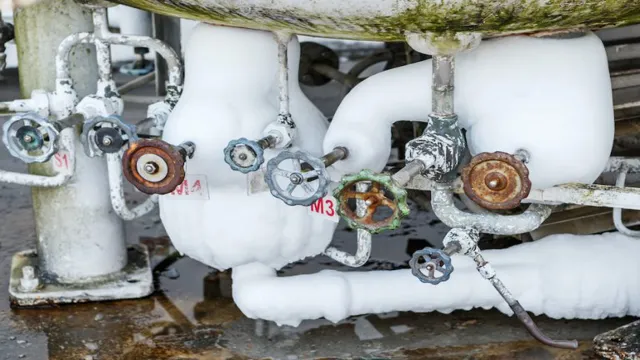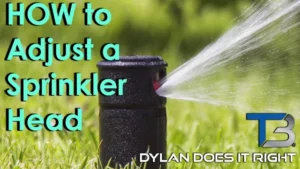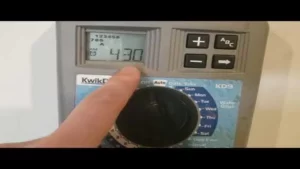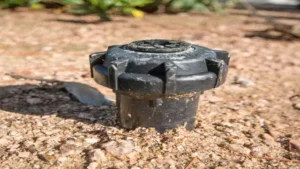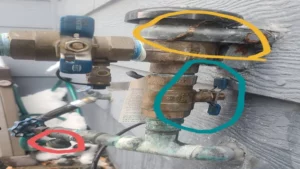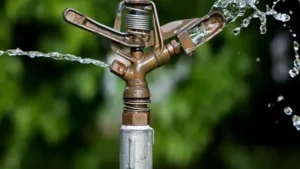Winter is a magical season with snowflakes falling from the sky, creating a winter wonderland. While it is beautiful, it can wreak havoc on your sprinkler system. Freezing temperatures can cause water inside your pipes to expand, leading to busted pipes, leaks, and other costly damage.
The harm can be catastrophic, and it’s essential to take measures to keep your sprinkler system safe from frost. Preventing frozen sprinkler systems should be your top priority, especially if you live in an area where freezing temperatures and snow are common occurrences. Taking preventive measures will reduce the chances of damage to your system, save you money on costly repairs, and guarantee a smooth-running system come springtime.
From draining your sprinkler system to using proper insulation, there are several ways you can keep your sprinkler system safe and operational through the winter season. In this article, we’ll go through preventative measures to keep in mind to ensure your sprinkler system remains safe and functional in colder weather conditions. Let’s explore how you can prevent winter damage to your sprinkler system!
Understanding the Problem
If you want to keep your sprinkler system from freezing, there are a few things you need to understand. First, freezing temperatures can cause water in your sprinkler system to expand and burst pipes or fittings. To prevent this, you need to make sure all the water has been drained from the system before winter sets in.
You can do this by turning off the water supply to the system and using compressed air to blow out any remaining water. Another option is to use a special antifreeze solution to protect your pipes and fittings from freezing. It’s important to follow the manufacturer’s instructions carefully when using this type of product to avoid any damage to your system.
Regular maintenance, including checking for leaks and repairing any damaged parts, can also help keep your sprinkler system in good working condition and prevent freezing issues.
Why Sprinkler Systems Freeze
If you’ve ever experienced a frozen sprinkler system, you know how frustrating it can be. Not only does it render your sprinklers useless, but it also poses a risk of damage to the system. Understanding the problem is crucial in preventing it from happening in the first place.
One of the main reasons for sprinkler system freezing is that water can get trapped in the pipes and valves, causing it to expand and burst. This can happen when temperatures dip below freezing, especially if the system is not properly insulated or drained. Another factor is the improper installation of the sprinkler system, which can cause water to accumulate in low-lying areas and freeze over time.
Investing in a reliable sprinkler system and having it regularly maintained is key to keeping it functioning properly and avoiding freeze-related issues. With regular checkups and preventative measures, you can prevent headaches down the road.
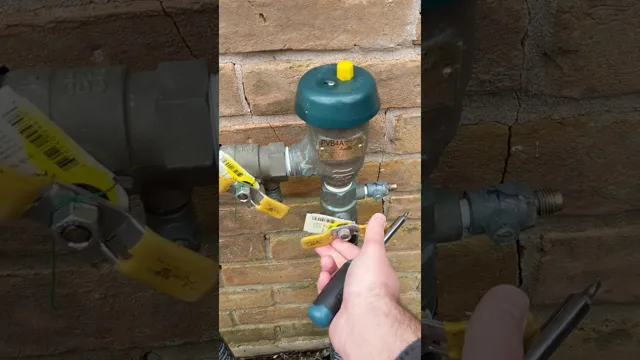
The Consequences of Frozen Sprinkler Systems
Frozen sprinkler systems are a common issue in colder climates, and they can lead to serious consequences. One of the most significant problems is that during a fire, frozen sprinklers could fail to activate, leaving your property unprotected. Frozen pipes can also become damaged or burst, causing extensive water damage to your property.
Water damage can lead to a whole host of other issues, such as mold growth and structural damage. Additionally, when water freezes, it expands, which can cause pipes to become misaligned, leading to ongoing issues with your sprinkler system. It’s crucial to understand the problem and take steps to prevent frozen sprinkler systems, such as ensuring adequate insulation and providing adequate heat throughout the building’s areas where the sprinklers are installed.
By taking preventative measures, you can avoid the costly and dangerous consequences of frozen sprinkler systems.
Solutions to Prevent Freezing
Freezing temperatures can cause significant damage to your sprinkler system, but there are a few things you can do to prevent this from happening. One solution is to drain the system before the winter months. This involves turning off the water supply and using compressed air to clear out any remaining water from the pipes and sprinkler heads.
Another solution is to install a system that senses temperature changes and automatically shuts off the water supply if necessary. Additionally, you can insulate the pipes and sprinkler heads with foam wrap or heat tape to keep them warm. By taking these preventative measures, you can ensure that your sprinkler system stays in good working condition all year round.
Remember, keeping your sprinkler system from freezing is crucial in maintaining an efficient and reliable system.
Draining the System for Winter
Winter is just around the corner, and it’s important to prepare your plumbing system to avoid damage caused by freezing. Draining the system is one effective solution to prevent this from happening. But how do you go about it? Firstly, turn off the main water supply to your home.
Then, open all the faucets in your home to allow the water to drain out. This process helps remove any water that might be left behind in the pipes, which can freeze and cause pipes to burst in extremely low temperatures. It’s important to remember to also drain the hot water tank and any outdoor spigots.
Seal up any air leaks around your home’s windows and doors to prevent drafts from entering and causing the temperature inside your home to drop below freezing. It’s worth considering hiring a professional plumber to ensure that this process is carried out correctly, and to check that your pipes are in good condition. By taking these preventive measures, you can help ensure your plumbing system remains intact throughout the winter.
Using Antifreeze Solutions
Antifreeze solutions are commonly used to prevent the freezing of liquids, particularly in colder temperatures. These solutions are essential for automobiles, as they help prevent the engine from freezing, which can cause significant damage. Antifreeze solutions contain a mixture of water and chemicals that lower the freezing point of liquids.
It is important to note that the type of antifreeze solution used depends on the manufacturer’s recommendations for your car. Ethylene glycol-based antifreeze solutions are the most commonly used type and protect from both freezing and boiling. However, propylene glycol-based solutions are considered safer and less harmful to animals in case of accidental ingestion.
It’s always best to consult with a professional before selecting a specific antifreeze solution. While antifreeze solutions are designed to prevent freezing, it’s important to use them in the correct concentration. Adding too much or too little solution can lead to decreased performance and potential engine damage.
Regular maintenance and monitoring of antifreeze levels are crucial to keep your car running smoothly and help prevent costly repairs.
Insulating the Sprinkler System
When it comes to preventing freezing in your sprinkler system during those cold winter months, insulating is key! Luckily, there are several solutions available to help ensure your system stays in top shape. One option is to use foam insulation, which is easy to install and helps keep pipes warm by trapping in heat. Another option is heat tape, which can be wrapped around pipes and supplies a constant flow of warmth.
Lastly, underground sprinkler systems can be insulated by using a specialized insulating foam that fills all the gaps to prevent water from freezing. Whichever option you choose, the most important thing is to take action before temperatures drop too low and cause damage to your system. Protecting your sprinkler system now can save you a lot of hassle and money in the long run.
Troubleshooting Tips
If you live in colder climates, it is crucial to protect your sprinkler system from freezing during winter months. One first step is to make sure that the water supply to the system is turned off and all the water has been drained from the pipes to prevent freezing. Another quick fix is to install insulation covers over the valves and the backflow preventer to keep them warm.
If you still experience problems despite these precautions, you may need to consult a professional to ensure there are no leaks or structural issues in your system. Taking care of your sprinkler system before winter sets in can save you money and reduce the risk of costly repairs from a damaged system. Don’t wait until it’s too late to prevent freezing – take action now to enjoy a properly functioning sprinkler system in the spring.
Checking for Leaks and Repairs
When it comes to maintaining your plumbing system, one of the most important things you can do is check for leaks. Leaks can lead to water damage, higher water bills, and even mold growth. One way to check for leaks is to turn off all the water sources in your home and then check your water meter.
If it’s still running, you may have a leak somewhere in your system. Another way to check for leaks is to inspect your pipes for any signs of moisture or water damage. If you do discover a leak, it’s important to address it right away to avoid further damage.
Depending on the severity of the leak, it may be a simple fix that you can handle yourself, such as tightening a loose connection. However, for more complex issues or major leaks, it’s always best to call in a professional plumber to ensure the repairs are done safely and correctly. By being proactive and addressing leaks promptly, you can save yourself time, money, and headache in the long run.
Inspecting for Proper Drainage
Inspecting for proper drainage is a critical task that every homeowner needs to be familiar with because blocked drains can lead to serious problems such as flooded basements, water damage to your foundation and walls, and even mold growth. One of the easiest ways to tell if your drains are clogged is to listen for gurgling sounds coming from your sink, shower, or toilet. If this happens, it’s a sign that your drain is not functioning correctly.
Another way to ensure proper drainage is to check your gutters and downspouts regularly. Clogged gutters can cause water to overflow, leading to water damage to your roof, siding, and foundation. By inspecting your home’s drainage system regularly, you can avoid costly repairs and ensure that your property remains in top condition.
So, don’t wait until it’s too late – be proactive and keep your drains functioning smoothly by inspecting them regularly.
Conclusion
When it comes to preventing your sprinkler system from freezing, it’s all about being proactive. Just like putting on a winter coat before heading outside, taking the appropriate steps to protect your system before the frost sets in is key. By properly draining the system, insulating exposed pipes, and installing automated shut-off valves, you’ll be able to avoid any icy mishaps.
So don’t let freezing temperatures put a damper on your beautiful green lawn – take action and keep your sprinkler system safe and warm all winter long!
FAQs
What temperature do I need to worry about my sprinkler system freezing?
Temperatures under 32°F can cause your sprinkler system to freeze and potentially cause damage.
How can I prevent my sprinkler system from freezing?
To prevent your sprinkler system from freezing, you can install insulation or heat tape on your pipes, drain the water from the system, or keep your system running slowly throughout the winter.
What should I do if my sprinkler system freezes?
If your sprinkler system freezes, turn off the water supply and use a hair dryer or heat gun to thaw the pipes slowly. Do not use a torch or open flame.
Can I leave water in my sprinkler system during the winter?
It’s best to drain all water from your sprinkler system during the winter to prevent freezing and potential damage.
How often should I check my sprinkler system during the winter?
It’s recommended to check your sprinkler system every two weeks during the winter to ensure there is no ice buildup and everything is functioning properly.
Is it necessary to hire a professional to winterize my sprinkler system?
While it is possible to winterize your own sprinkler system, it may be safer and more effective to hire a professional to ensure it is done correctly.
What type of antifreeze should I use in my sprinkler system?
It is not recommended to use antifreeze in your sprinkler system as it can be harmful to the environment. Instead, drain the water from the system to prevent freezing.
